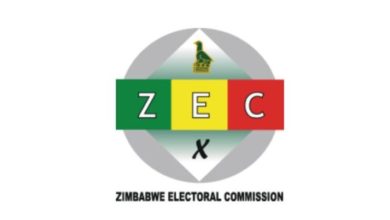CCC maintains its stance on candidate selection as speculation increases

As speculation mounts about the Citizens Coalition for Change (CCC)’s candidate selection procedure, the opposition party has maintained its stance that the community consensus public nominations are more democratic and inclusive than primary elections.
Concerns have been expressed by people from various backgrounds about how the process will unfold, as well as who is eligible to nominate or represent the party.
Responding to queries on Morning on Asakhe, a Twitter space show hosted by CITE on Tuesday, CCC deputy national spokesperson, Ostallos Siziba, said unlike primary elections, which are narrow in scope because only members of that organisation can vote, this process will allow communities to choose their preference.
“Not anyone outside the movement can participate in primary elections of political organisations therefore what we have done this time is let the community choose candidates. If you belong to a certain community and identify with certain values you are certainly going to have the right to nominate anyone,” he said.
Siziba claimed this process would “in fact open up democracy”.
“I don’t know how you are confusing opening up a process with closing it because this is open. It is more democratic, far-reaching and done in communities by ordinary people in different communities of the 2 000 wards in the country,” he said.
“People who identify with our movement can say this is the person I nominate. That right will not be taken away and would reflect the will of the people.”
The CCC deputy spokesperson emphasised that no candidate would impose themself as people were the ones who will nominate their choices.
“If the selection process was traditionally closed, the party would not have made its template document public. It is public because every interested party can be able to read and understand and then raise questions if the template is not being followed,” Siziba said.
Siziba also said CCC will announce names of the commissioners who will be part of an independent panel that will drive the process this Tuesday.
“The process will not be driven and conducted by politicians but the panel that will look at how different wards are aligning themselves to the template and how problems can be addressed,” he noted.
The deputy spokesperson noted CCC had tested this selection process during the by-elections held last year.
“It was the only opportunity we had and this template came up after learning some of the challenges. Some of the problems we observed were people who tried to make impositions. It is for that reason that we have produced this template,” Siziba said.
“In the by-elections, there was no specific template and it didn’t answer questions about who are the stakeholders, the street people who are able to coordinate how and where the venues will be.”
But in this latest template, Siziba said it answers all issues raised in the by-elections.
“We now clarify we are going to be collecting names of people who will be on the street registers, these are not people who subscribe to the movement but belong to the communities in the villages and we clarify that in the template this time,” he said.
The CCC official said during by-elections, processes were conducted by politicians and technical officials in the party, which created some problems.
“That’s why we cleared this with our independent electoral panel, which is going to be conducting this process and making decisions based on the agreed template,” he said.
The template also seeks to do away with challenges of having double candidates, Siziba noted.
“Double candidates came in because the consensus process was not done properly and thereby had two people signed for. Now in this process we are going to have an official candidate list for the avoidance of confusion, Zimbabweans will be aware of the people who will represent CCC. From there, we have people who will sign for the candidates in the official list, not anyone else.
“We have learnt our lesson that’s why the document is now more broad to answer these questions in black and white for the satisfaction of those who intend to participate and those who want to observe.”
There will be a vetting process to act as a buffer against those who indulge in vote buying, which is an offense and can get one disqualified.
“We have also set a grievance committee where such issues can be brought in and set rules around how people should conduct themselves,” Siziba said.
The CCC deputy spokesperson highlighted that all these organs are independent of each other so that they function effectively.
“Those that are going to be doing the process, the vetting and those handling the grievances will all be different but guided by guidelines and rules of engagement,” Siziba said.





